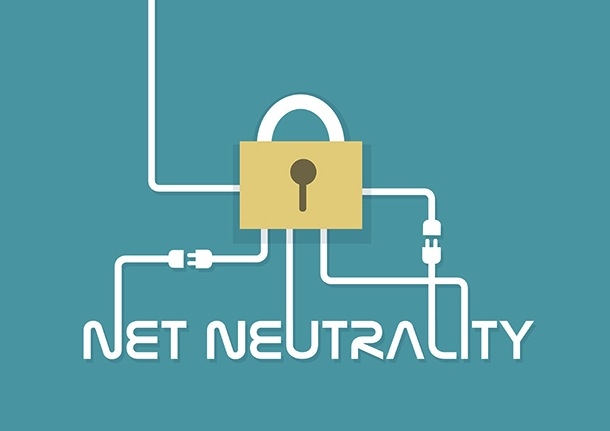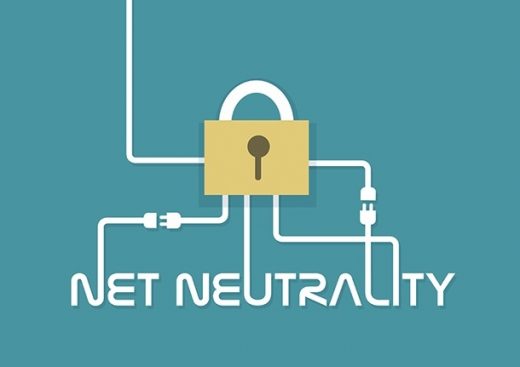Net Neutrality Repeal Enables Abuse By Carriers, Groups Tell Court
Net Neutrality Repeal Enables Abuse By Carriers, Groups Tell Court
The recent repeal of Obama-era net neutrality rules could harm large tech platforms, small businesses, entrepreneurs and consumers, a wide coalition of groups told a court this week.
The Obama-era rules — passed by the Federal Communications Commission in 2015 — prohibited broadband carriers from blocking or throttling online traffic and from charging companies higher fees for prioritized delivery. Those rules marked a culmination of prior FCC broadband policy directives dating to 2005.

Last December, the FCC voted 3-2 to revoke the net neutrality rules and to replace them with a “transparency” rule that requires Internet service providers to disclose their traffic management practices.
But as net neutrality advocates rightly point out, a mandate to provide information is no substitute for the open Internet rules — especially when consumers can’t do much with the information. After all, it’s not as if people can easily change ISPs, given the sorry state of competition among broadband providers.
The Silicon Valley trade group Internet Association — along with the Entertainment Software Association, Computer & Communications Industry Association and Writers Guild of America, West — made that point this week in a friend-of-the-court brief filed with the D.C. Circuit Court of Appeals. The groups are asking the court to vacate the recent repeal.
“Rules regulating the conduct of ISPs continue to be needed to protect and promote an open internet. Especially in light of the extremely limited competitive options available to consumers … ISPs can abuse their gatekeeper position by restricting consumer access to online content, which in turn harms edge providers,” the Internet Association writes.
“Transparency alone is not enough,” the group adds. “The broadband marketplace cannot effectively discipline ISP gatekeepers because a lack of competition and high switching costs prevent even fully-informed consumers from responding to unwanted ISP practices.”
FCC Chairman Ajit Pai has argued that the prior regulations were “heavy handed” and depressed investment.
But the Internet Association, like other observers, questions Pai’s math.
“The Commission credits a variety of flawed economic analyses that do not, in fact, demonstrate that ISP investment declined, much less that the 2015 Order was the cause of any change in investment,” the organization writes. “The studies cited by the Commission either fail to address causation at all or fail to carefully control for other causes of perceived investment changes while net neutrality protections were in effect. Relying on them is arbitrary and capricious.”
Online auction company eBay adds in separate court papers that the repeal won’t only harm large companies, but could also affect small businesses and sole proprietors.
“The FCC ignored the reliance of small businesses (and edge providers more generally) on open Internet protections and the potential harm in the removal of such protections,” eBay writes. “Small businesses such as those that rely on eBay’s online marketplace are particularly vulnerable to the FCC’s elimination of all open Internet rules except a transparency rule because they lack the resources to access and understand ISP disclosures and take meaningful action to address potential harmful ISP conduct.”
Numerous others also chimed in with friend-of-the-court briefs, including the digital rights group Electronic Frontier Foundation. That organization argues that the repeal will empower broadband providers to engage in all sorts of problematic activity, ranging from censoring political speech to squelching start-ups.
The EFF notes that during a 2005 labor dispute, a Canadian ISP blocked websites related to unions. Two year later in the U.S., Verizon blocked the abortion rights group NARAL from sending text messages to supporters.
“In addition to threatening online expression, the 2018 Order also endangers the Internet as a space for innovation, by altering regulations that have been in place for years,” the EFF writes. “Google, for instance, started as two students with a better search algorithm. If they had needed to negotiate deals with Comcast, Verizon, and other … providers, they might never have overcome the incumbent search giants of the time: Excite and Alta Vista.”
The FCC is expected to file its arguments by October 11, and broadband providers that are intervening are expected to submit their arguments by October 18.
(29)


